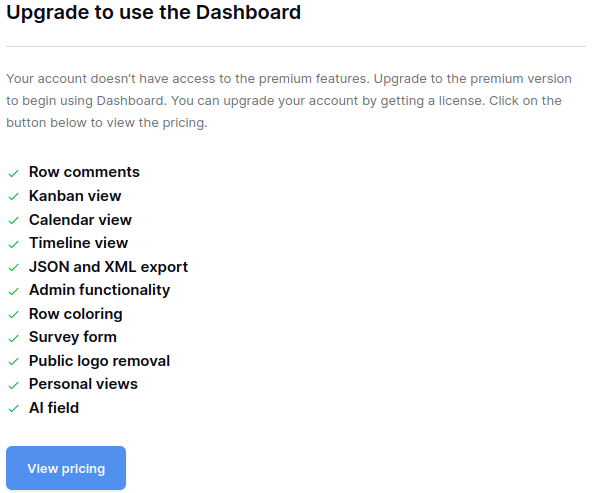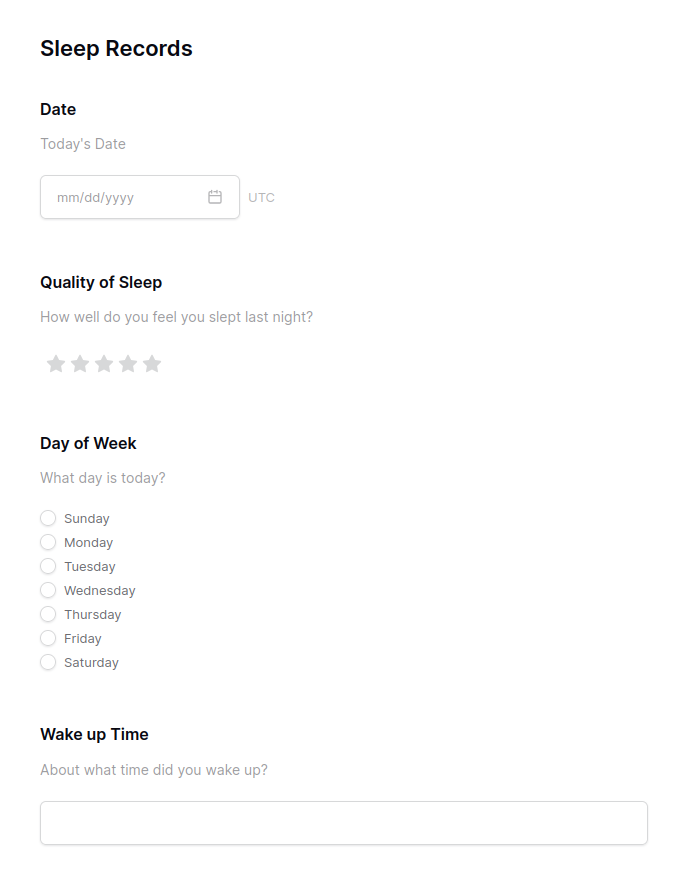My three essential selfhosted services are :
- an XMPP server
- a CalDAV server
- a bookmark manager (Linkding)
A place to share alternatives to popular online services that can be self-hosted without giving up privacy or locking you into a service you don't control.
Rules:
Be civil: we're here to support and learn from one another. Insults won't be tolerated. Flame wars are frowned upon.
No spam posting.
Posts have to be centered around self-hosting. There are other communities for discussing hardware or home computing. If it's not obvious why your post topic revolves around selfhosting, please include details to make it clear.
Don't duplicate the full text of your blog or github here. Just post the link for folks to click.
Submission headline should match the article title (don’t cherry-pick information from the title to fit your agenda).
No trolling.
Resources:
Any issues on the community? Report it using the report flag.
Questions? DM the mods!
My three essential selfhosted services are :
WireGuard on my VPS, because otherwise I'm stuck behind CGNAT and can't access anything in my network from elsewhere. Or Tailscale, but that's not really self-hosted.
do you have a good guide on how it works/ho to set it up? I tried a little while ago but couldnt figure it out.
Gamevault: To share Games with my friend's especially modded games. Jellyfin: Sharring Movies/Series/Music Immich: Saving my Pictures Pi-Hole + Unbound: Ad-blocking
Gamevault is cool, but I wish they weren't windows-only on the client side. Lutris integration would be excellent.
XBev 4thud EE
Paperless-ngx
The rest is already in the other comments
Omada software controller handles my wireless access points. HomeBridge lets me control various things from my iPhone, without having to use 5 poorly-made apps.
In no particular order, the most essential ones are those I constantly use throughout my day and also weekly.
Proxmox holds all of these in different LXC's and VM's
Aside from that, i do have other services I use every so often like Memos, Joplin Server (holds most of my notes), Pingvin and a few others.
+1 for UptimeKuma. Works great.
I tried Baserow a while ago but decided not to use it because it started downloading the application after running the container and required an online account (that could also be NocoDB). How has your experience been after using it for longer?
I had to create an account as per the usual process for these types of apps, but it was all local. I never had to do one to connect to their servers. I know it generates a unique instance ID which I believe phones home to their servers but I don't mind personally.
As for my experience, a lot of it is locked behind their paid plans, so I just keep it limited to what I use which is fine. I do like it as it does better than NocoDB for my needs (the input forms is what I needed) and it does better there. I don't recall the other reasons for not using NocoDB otherwise, but it's a long while.
Their pricing is here: https://baserow.io/pricing

So, that's mostly what is locked behind.
My sleep form I built which feeds the database:

Overall, it does meet my needs so that's all I ask. :)
Tailscale
Nextcloud, vaultwarden.
Zim + syncthing + mega
Some WebDAV server, can be Nextcloud but actually something more lightweight is better.
Also a XMPP server is very nice to have. Even if you don't have many contacts on it (yet), it works very well has a notification service and can even be extended to act as a Unified Push distributor.
Radicale is next on my list
Arr stack plus Jellyfin/Plex, Nextcloud and Gitea.
The only one I haven't seen mentioned here that is a requirement for me is OPNsense. I've been using it for a couple years, and pfSense before that for a very long time. Never going back to commercial routers and their shitty / buggy / backdoored software. I highly recommend OPNsense over pfSense for the UI improvements alone, but there are other reasons to use/support OPNsense over pfSense.
On my network it handles internet firewall, internal firewall, and all routing across 5 VLANs and between two internet gateways. It does 1-1 NAT for my public IPs, inbound VPN, outbound VPN for my *arr stack, and RDNS blocklists with the data source being a script I wrote that merges from several sources and deduplicates the list. It is my internal certificate authority (I don't miss you at all, Windows CA), DHCP for the guest wifi, and does pihole-like ad blocking via DNS for my entire network. And it does all that running in a VM with 2GB of RAM, of which it only uses about 60% on my install.
It is an incredibly powerful tool, not terribly difficult to learn, has a pretty damn good UI for FOSS, and in my opinion is a fantastic foundation for a complex home network / homelab. Unlike pfSense, which corrupted itself twice over the years I ran it, it has never let me down. And every update has been painless over the years.
I understood some of those words. It make network go?
It make network go very good.
Depends on what your usecase is for what is "essential."
I think keeping household documents, taxes, medical bills, etc... In a local only paperless-ngx instance is quite essential to the organization of a household where everything is searchable and able to be organized on multiple levels compared to a simple document folder on 1 computer.
Having a document or self-hosted wiki with an in - case - of - death document that gets backed up in an encrypted, but accessible by family place is probably the most "essential" thing.
Immich/PhotoPrism/whatever you use for image backup. Cloud providers are snooping through your shit.
Plex/Jellyfin for streaming
Sonarr, Radarr, Prowlarr, SABnzbd, qBittorrent to support the streaming service(s)
Pi-hole. Get rid of at least some ads on the network level. Maybe add unbound for a faster DNS response.
Nextcloud.
I was hosting nextcloud at home for years. Then when I worked in a Datacenter I got to host some servers there from free so I set up a two-node proxmox with nextcloud and some other stuff. Now I don't work there anymore and I really felt the hole nextcloud left, no more notes syncing for notes, tasks, calendar, podcasts no more place to upload my photos from my phone ... So now I'm hosting nextcloud at home again.
I also host jellyfin which is nice but if I don't have it doesn't actively hamper my workflow.
In terms of most used for me, it would be:
Audiobookshelf also finds, manages, streams podcasts. After Google killed off Google Podcasts, ABS has been an even better replacement in my experience.
Gonna also throw in: Nextcloud Memories.
It makes the photo organizing part of NextCloud AMAZING. I'm so happy I got to dump Google Photos for good.
Did not know about this, but it's exactly the extension I was looking for! Thank you!
I'm so glad it was helpful! You're very welcome! I try to spread the word since NextCloud's default photo app...scares people away frankly lol.
I now use an extension to customize the menu, so Memories effectively replaces the default app from a user point of view.
Using Memories in Nextcloud AiO simplifies things a bit, but I seriously consider it NextCloud's "killer app." It's got EXIF editing, albums, user sharing, folder organizing, facial (and object!) recognition done locally, geo tagging map view...all local. The face recognizing stuff isn't perfect, but it's definitely good enough for the most part.
It's also very easy to send to people outside NextCloud, but I run it behind TailScale so it's not exposed to the open net at all. Copying and sending images through something like Signal also works fine. :)
It even has a neat Android app that sends my pictures to my server whenever I plug my phone in. (And moves them to my SD card in case something goes awry...but I learned I need to manage the cleanup of that part better lol)
Given all the other neat things NextCloud does, I like how it keeps photo managing in one place too.
A reverse proxy, in my case Caddy.
How did you set up you SSL certificates, are you using a self signed certificate or do you use a custom subdomain?
Duh, you need a reverse proxy to host most of the stuff (if you want to run more than 1 service and use HTTPS). I use Traefik btw, though I heard Caddy is very easy to use.